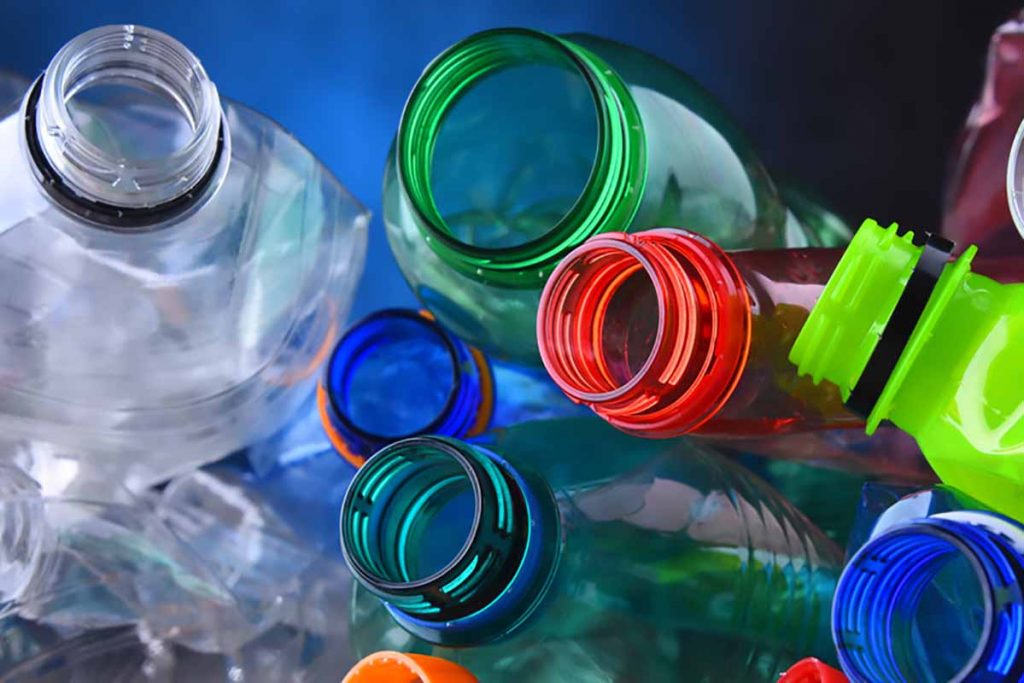
To meet California’s 15% PCR rate by 2022, U.S. reclaimers need an aggregate additional output of 800,000 tons of food-grade post-consumer PET and PE. | monticello/Shutterstock
A report from Independent Commodity Intelligence Services found that there’s not enough post-consumer resin in the U.S. market to meet California’s mandates, and there are more state mandates coming on-line soon.
“Substantial growth in recycled resin production would be needed to square the gap between supply and demand in the U.S., which is implausible to occur within such a short period of time,” the report warned. “Under limited supply, large corporations are likely to dominate the market, challenging smaller manufacturers to comply with the mandate.”
California’s minimum-recycled-content mandate for plastic beverage containers went into effect Jan. 1. California was the first state in many years to impose a minimum when it passed the law in September 2020. Since then, others have followed.
The requirement has added to the demand for recycled resins, but Independent Commodity Intelligence Services (ICIS) found that the U.S. supply is “currently limited and expected to remain constrained in the short to mid-term.”
Under the law, manufacturers selling their containers in California are required to include an annual average of 15% post-consumer resin (PCR), which will increase to 25% in 2025 and 50% in 2030.
However, there’s not enough PCR to go around. Overall, RPET and recycled PE make up 75% of the total U.S. installed mechanical recycling capacity. That’s 5 million tons in 2021, the report said, but only 20% of that is currently food grade. And over 55% of the total capacity is post-industrial plastic, but the mandate only accepts post-consumer plastic.
According to the ICIS Recycling Supply Tracker, almost 80% of RPET originates from post-consumer sources, but recycled PE is only about 30%.
To meet California’s 15% PCR rate by 2022, U.S. reclaimers need an aggregate additional output of 800,000 tons of food-grade post-consumer PET and PE.
By 2025, the 25% PCR requirement pencils out to a need for 80 new recycling plants with an average output of 18,000 tons a year.
Overall, there would need to be a compound annual growth rate of 45% in U.S. output for companies to meet the mandate of 30% PCR by 2030, the report said.
Since mid-2019, food-grade RPET pellet prices have been at a premium over virgin bottle-grade PET, the report found, and those are not going to fall anytime soon. The market conditions mean that brands’ costs will rise no matter what.
“In order to comply with the California PCR content mandate, beverage manufacturers will have to pay more, either the recycled resin premium, that is if supply is available, or an annual administrative penalty of 20 cents for each pound of PCR,” the report said. “Although brands say they will try not to pass these costs onto consumers, the situation is still doubtful.”
That’s just the result of California’s mandate, the report said, and Washington state and New Jersey both passed similar bills with recycled-content mandates that start in 2023 and 2024. There’s been a push on nationwide minimum-recycled-content mandates, too.
“This is only the beginning,” the ICIS report said, adding that “these regulations, in conjunction with brands’ pledges, bring even more demand to a supply chain that is already challenged.”
More stories about research
- RIT researchers develop AI-based textile recycling system
- Researchers: Effective plastic treaty requires production cuts
- Research, programs improve film recycling access